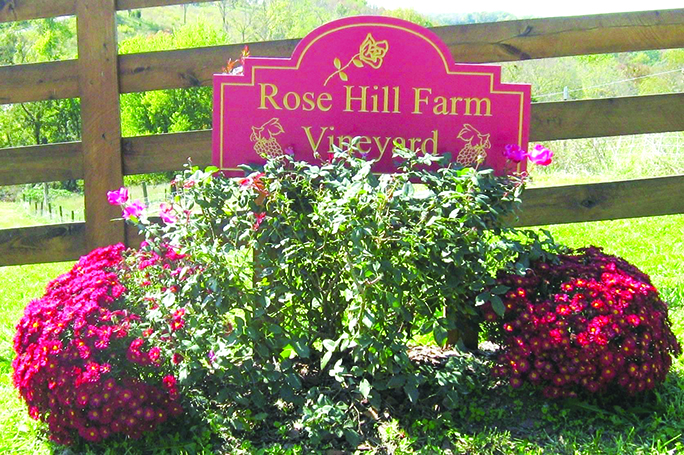
By Carolyn Reid
Thanks to legislation passed in the current legislative session, those who enjoy wines from Kentucky’s Small Farm Wineries should soon have a much easier time finding bottles of the local vino selections than the possibly have had in the past.
And Rose Hill Farm Vineyard Wine’s Jenny Beetz had a hand in making that happen.
Beetz, a local producer of wine that is a favorite of many in the area, joined small farm winery owners to lobby legislators to allow these small producers to do what microbreweries have been doing for two years: distribute their own products.
Senate Bill 28 was signed into law Friday, March 17, by Gov. Andy Beshear, allowing wineries to self-distribute up to 12,000 gallons of production to retailers across Kentucky, Beetz shared. “These retailers include restaurants, bars, and liquor stores.”
The bill originally allowed for small wineries to sell and distribute up to 30,000 gallons annually, but it was later amended to the lower amount. It reads: Amend KRS 243.155 to reduce the gallonage for self-distribution to 12,000 gallons per licensee; ensure that products being self-distributed are from the winery holding the license; allow small farm wineries in Kentucky to sell other small farm wineries’ products that are produced in Kentucky; amend KRS 243.884 to include small farm wineries in the wholesale tax.
According to Beetz, this is a game-changer. “Small wineries have not been well represented in the retail marketplace because of the requirement of a wholesaler. Large Kentucky wholesalers refuse to move products from small farm wineries as required by Kentucky’s three-tier system.”
Until recently, Beetz had a distributor--her brother-in-law. He was at first licensed in order to help her move her products. In December, he retired. He is 79 years old. The job required him loading and unloading products to her retailers.
In January, the bill was introduced. While it was a state-wide push, Beetz said she took the effort under her wing with others from the Northern Kentucky area.
She says the state has 72 small farm wineries.
Beetz says, “Self-distribution in the United States is a common practice, and many wineries thrive as a result. Neighboring states such as Ohio, Indiana, and Michigan are permitted self-distribution of wines from their small wineries.” The amount of wine that can be distributed in those states is significantly higher, with Indiana and Michigan actually having no limits to what is distributed.
Distributors added other complications that were especially frustrating for small wineries; for example, a $10 bottle of wine could easily double by the time the middle-man and then the retailer were paid if a retailer could be found.Beetz was minus a distributor for two or three months. She was suffering on her end, and Tom Himmelsbach of The Kentucky Millstone was concerned on his end, too. “All I have left of Jenny’s wine is on display right now.” He pointed to about a half-dozen bottles of the product on his shelf. He said he would be glad to replenish his supply for his customers.
Now, Beetz says it is easier for her to take her products into local businesses since she is not required to have a distributor do that for her.
She gives Sen. John Schickel, the Republican from Boone County, and Sen. Shelley Funke Frommeyer for their help pushing the bill forward and onto the govern’s desk. She appreciates their efforts to give Kentucky wineries the same benefits other states have enjoyed for years.
“It was time to level the playing field and allow small farm wineries the same opportunity.”


